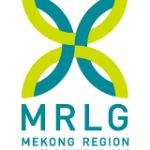MRLG invites participants for Mekong customary tenure dialogue

The Mekong Region Land Governance Project is seeking participants for an online dialogue on Recognition of Customary Tenure in the Mekong region, taking place between February 13-24, 2017.
Please see below for their invitation, register for attendance at their website, and contact info@mrlg.org for more information.
—
YOU ARE INVITED
The Mekong Region Land Governance (MRLG) project and the Land Portal invite you to join our online dialogue on the Recognition of Customary Tenure in the Mekong Region, from 13-24 February. The dialogue will focus on exploring the challenges and opportunities related to the recognition of indigenous, ethnic minority and community tenure rights in the Mekong region. Participants, from the Mekong region and around the world, will examine the status of community tenure rights and share ideas on how to strengthen them.
The dialogue will:
Increase information exchange between participants inside and outside the region;
Identify issues of common interest;
Compare and contrast regional and international contexts and experiences in customary tenure recognition that can inform potential strategies and actions at country and regional level.
Generate a regional level synthesis of key challenges and opportunities related to community tenure in the Mekong region that will be shared broadly.
A final report will be published and publicly available online following the dialogue.
Your participation will help ensure a rich discussion.
For more information
Dialogue questions
Here are the questions that will guide our discussion. We look forward to hearing what you think on these issues.
What is customary tenure? Is it the same as “traditional tenure arrangements of indigenous people/ ethnic minorities”?
Why is securing customary tenure rights important?
To differing extents, there are policies recognizing customary tenure in all countries in the Mekong region. However, progress towards securing indigenous, ethnic minority and community tenure rights has been hampered by the cumbersome requirements for achieving formal recognition, reflecting in part the tension between local and state authority. In your opinion, what would be required to strengthen the recognition of indigenous, ethnic minority and community tenure rights in the region?
Since it takes a long time for regulatory revisions recognizing customary tenure to be made and implemented, how effective have interim protection measures been? What are some examples?
We know that in customary systems there is often a mixture of communal land (e.g. collectively managed shifting cultivation areas and forest areas) and plots claimed by individual families (e.g. paddy land or upland plots with long-term crops). What is the best way to recognize the variety of tenure rights in customary systems?
Customary systems, particularly norms governing the internal management of communal land, are often characterized as having higher levels of equality compared to private property regimes. Nevertheless, customary systems may also exhibit gender inequality and/or other forms of exclusions as a result of local power dynamics. How can statuary recognition of customary rights ensure that equity considerations, including principles of transparency and inclusive decision-making, are adhered to in customary systems?
There are concerns that the recognition of customary tenure, which sometimes lead to unique categorizations of “indigenous” land where communities can continue to practice “traditional livelihoods” (in some cases with restrictions on community involvement in commercial activities), may not help alleviate conditions of poverty, food insecurity and vulnerability experienced in many communities. Is it possible to combine recognition of customary tenure rights and forestry/agricultural development through investment/commercial activity? Are there examples where this has been done successfully?
What strategies can be taken to defend, strengthen and promote customary rights in the Mekong region? How can regional dialogues facilitate greater recognition of the rights and priorities of local communities, including addressing issues of power and politics?
How to join the dialogue
We encourage you, your colleagues, and anyone with an interest in land issues to participate. The dialogue will be conducted in English to facilitate transnational communication. We can provide English editorial assistance to contributors, as needed.
Please feel free to answer any of the dialogue questions that interest you and then upload your contributions online.
Please keep your contributions brief – not more than 500 words, shorter is fine too. We welcome as many contributions as you wish.
Once the dialogue begins, we encourage you to follow the online discussion. As a registered participant, you’ll have the opportunity to ask questions and make comments. You may also make new contributions at any time, as ideas occur to you. This will make for a lively discussion!
The dialogue will also be open for anyone to follow online even without registration. Only registered participant can contribute with comments and questions.
Please feel free to share this invitation with others.
If you have any questions, please contact us at: info@mrlg.org

